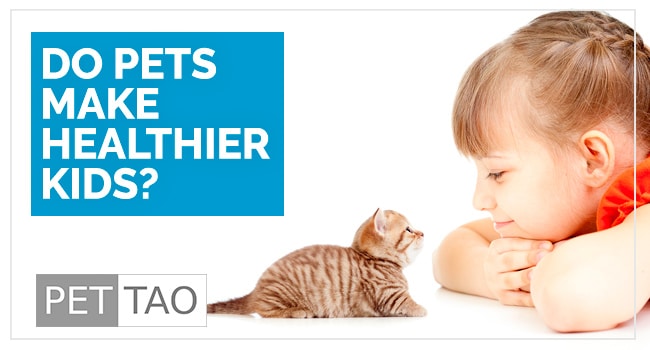But can those habits actually benefit your family?
According to research, the answer is yes!
Understanding the Research
In a study called “The Wild Life of Our Homes,” house dust collected by volunteers revealed more than 70,000 species of fungi and 125,000-plus kinds of bacteria in participants’ homes.
These bacteria and fungi are not all harmful.
Research explains why.
Why Pets in the Home Benefit Children & Immune System
The Royal Society of Publishing Biological Sciences recently released research showing how dog ownership increases 56 different types of bacteria in the home.
However, cats in the home only raise 24 categories of bacteria.
Scientists studying the “indoor microbiome,” or the viruses, fungi, and bacteria in our homes, argue not all microorganisms are harmful.
In fact, exposure to a variety of indoor germs benefits our immune system, helping prevent illness.
Even if we bleach, scrub and scour our homes, dogs reintroduce “good” bacteria, balancing our “indoor microbiome.”
After countless researchers found evidence to support these findings, they began referring to “the hygiene hypothesis.”
This hypothesis suggests why spending more than 90 percent of our lives in low-bacteria environments, especially during early childhood as our immune systems form, causes our bodies to wrongly attack harmless substances later in life, making us ill.
Our human predecessors grew up alongside animals for thousands of years, properly calibrating our immune systems.
Benefits of Farm Animals With Our Immune System
Researchers published in The New England Journal of Medicine last year shows how Amish children who grew up near barnyard animals had lower rates of asthma than Hutterite children raised away from animals on mechanized farms.
The research is interesting because the Amish and Hutterites share similar genetic backgrounds, have large families, simple lifestyles, low exposure to smoke and pollution, and clean homes without indoor pets.
The study authors revealed Amish children raised close to livestock suffer from fewer immune-related illnesses, such as asthma and allergies.
Asthma affects the Amish at a rate of 2 to 4 percent, and Hutterites at about 15 to 20 percent.
Allergies and asthma occur when the immune system attacks the wrong systems in the body.
According to the Centers for Disease Control and Prevention, as many as 10.6 percent of grade-school children suffer from asthma, a chronic illness without a cure.
Research suggests this phenomenon is a result of children growing up in homes that are too clean.
In fact, in the journal Clinical and Experimental Allergy, research published shows children of farmers experience less hay fever and asthma.
“It makes sense when you think of how the immune system works,” according to Dr. Damron, veterinarian, and co-founder of PET | TAO.
“As the immune system matures, it has to learn which substances may be harmful to the body and how it should respond,” Damron added. “If most substances are limited during this maturation phase, then the body does not know how to react when exposed later.”
Get PET | TAO Products at TCVM Pet Supply








